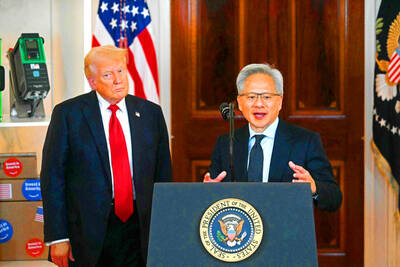Four major Silicon Valley companies have formally agreed to pay US$324.5 million to settle claims brought by employees who accused them of limiting competition by colluding not to poach each other’s talent.
The settlement, between Apple Inc, Google Inc, Intel Corp, Adobe Systems Inc and about 64,000 workers, was disclosed in papers filed late on Thursday with a US federal court in San Jose, California.
US District Judge Lucy Koh has been asked to preliminarily approve the accord at a hearing on June 19, over an objection by one of the four named plaintiffs, Michael Devine, who says the settlement let the companies off too easily.
The payout was originally reported by Reuters, but not officially confirmed.
Lawyers for the plaintiffs may seek up to 25 percent of the settlement amount in legal fees.
Filed in 2011, the lawsuit accused Silicon Valley companies of conspiring to limit competition and keep wages down for engineers, programmers and other technical staff.
The case has been closely watched because of the potential US$9 billion of damages sought, and its occasional embarrassing revelations into how Silicon Valley operates.
Among the communications that became public were pointed e-mails written by Apple cofounder Steve Jobs that at times admonished then-Google chief executive Eric Schmidt to stop “raiding” his company.
Thursday’s settlement gives workers only a few thousand US dollars each on average.
The combined proft of the companies in their latest fiscal years was about US$60 billion, with three-fifths generated by Apple.
In court papers, two law firms representing the plaintiffs said that Devine’s objection should not doom what they consider a fair and reasonable settlement for an antitrust case, and which they say serves the best interests of the class.
They pointed to a July 2012 jury verdict in the same court that found that Toshiba Corp conspired to fix prices in the liquid-crystal display market, but awarded just US$87 million of damages, one-tenth of what was sought.
“The amount of the settlement does not relate to the size or profitability of the companies we sued,” Joseph Saveri, a lawyer for the plaintiffs, said in an interview.
“It relates to the claims we made, the law that applies to them, and the facts that we could prove at trial. Based on that, I think the settlement is a significant achievement,” Saveri added.
Meanwhile, Koh on Friday last week approved separate settlements totaling US$20 million over alleged poaching by Walt Disney Co’s Lucasfilm and Pixar units, and by Intuit Inc.

Taiwan Semiconductor Manufacturing Co (TSMC, 台積電) last week recorded an increase in the number of shareholders to the highest in almost eight months, despite its share price falling 3.38 percent from the previous week, Taiwan Stock Exchange data released on Saturday showed. As of Friday, TSMC had 1.88 million shareholders, the most since the week of April 25 and an increase of 31,870 from the previous week, the data showed. The number of shareholders jumped despite a drop of NT$50 (US$1.59), or 3.38 percent, in TSMC’s share price from a week earlier to NT$1,430, as investors took profits from their earlier gains

AI TALENT: No financial details were released about the deal, in which top Groq executives, including its CEO, would join Nvidia to help advance the technology Nvidia Corp has agreed to a licensing deal with artificial intelligence (AI) start-up Groq, furthering its investments in companies connected to the AI boom and gaining the right to add a new type of technology to its products. The world’s largest publicly traded company has paid for the right to use Groq’s technology and is to integrate its chip design into future products. Some of the start-up’s executives are leaving to join Nvidia to help with that effort, the companies said. Groq would continue as an independent company with a new chief executive, it said on Wednesday in a post on its Web

CHINA RIVAL: The chips are positioned to compete with Nvidia’s Hopper and Blackwell products and would enable clusters connecting more than 100,000 chips Moore Threads Technology Co (摩爾線程) introduced a new generation of chips aimed at reducing artificial intelligence (AI) developers’ dependence on Nvidia Corp’s hardware, just weeks after pulling off one of the most successful Chinese initial public offerings (IPOs) in years. “These products will significantly enhance world-class computing speed and capabilities that all developers aspire to,” Moore Threads CEO Zhang Jianzhong (張建中), a former Nvidia executive, said on Saturday at a company event in Beijing. “We hope they can meet the needs of more developers in China so that you no longer need to wait for advanced foreign products.” Chinese chipmakers are in

POLICY REVERSAL: The decision to allow sales of Nvidia’s H200 chips to China came after years of tightening controls and has drawn objections among some Republicans US House Republicans are calling for arms-sale-style congressional oversight of artificial intelligence (AI) chip exports as US President Donald Trump’s administration moves to approve licenses for Nvidia Corp to ship its H200 processor to China. US Representative Brian Mast, the Republican chairman of the US House Committee on Foreign Affairs, which oversees export controls, on Friday introduced a bill dubbed the AI Overwatch Act that would require the US Congress to be notified of AI chips sales to adversaries. Any processors equal to or higher in capabilities than Nvidia’s H20 would be subject to oversight, the draft bill says. Lawmakers would have